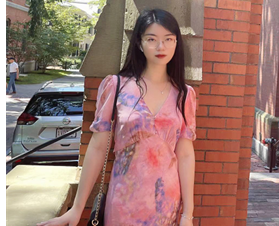ADD THESE DATES TO YOUR E-DIARY OR GOOGLE CALENDAR
This site is part of the Siconnects Division of Sciinov Group
This site is operated by a business or businesses owned by Sciinov Group and all copyright resides with them.
ADD THESE DATES TO YOUR E-DIARY OR GOOGLE CALENDAR

Duke University, United States {12:30PM-01:00PM}
Title:Shifting Boundaries and Unyielding Loyalty: the Bianca Case and Post-War China’s Female Collaborator Trial
This research adopts a de-moralizing perspective, focusing on the Bianca case from 1945 to 1947 to explore the issue of Female collaborators in the Japanese-occupied period in the Republic of China. Bianca Sannino (1918-1993) was born in Rome to an aristocratic family and married with a Chinese military student. After the outbreak of World War II, she separated from her husband, a Chinese general, and was in occupied Shanghai while he fought in China-Burma-India Theater. After war finished, Bianca was suspected of gathering intelligence for the Japanese intelligence agency and engaging in black market trading.
By analyzing related case files preserved in the court from Guangdong Provincial Archives in China, the article strives to reconstruct the trial process and incorporates a diverse range of materials including legal history documents, memoirs, newspapers, and autobiographical novels into the scope of investigation. From a gender perspective, the study analyzes the alignment of modern Chinese nationalism with masculinism, and how women astutely manipulated masculinist rhetoric to carve out their own narrative space. Interracial marriage, the pattern of bigamy in Chinese society during wartime; the hegemonic masculinities displayed in military trials is also the focus of research. Bianca case suggested that the wartime alterations in regional affiliations and population mobility challenged the nationalist discourse’s binary structure of loyalty and betrayal, which also accounted for the challenges China faced in adjudicating and penalizing traitors after the war. By analyzing this case, which involves the history of emotion, non-fiction literature, and legal history, this research enriches the phenomenon of “collaborators” that was discussed in the historical and literary circles in 1980s. And, more importantly, it seeks to carve out a new space for the voices of involved women.
My name is Jingyi Liu. I hold a bachelor's degree in Chinese Literature and Language from Peking University and a master of Arts degree at Duke University. My academic research is around Chinese literature and comparative culture study in modern and late Imperial period. Currently, my ongoing research mainly focuses on the interaction of modern Chinese women with modern Chinese nationalism discourse dominated by male.